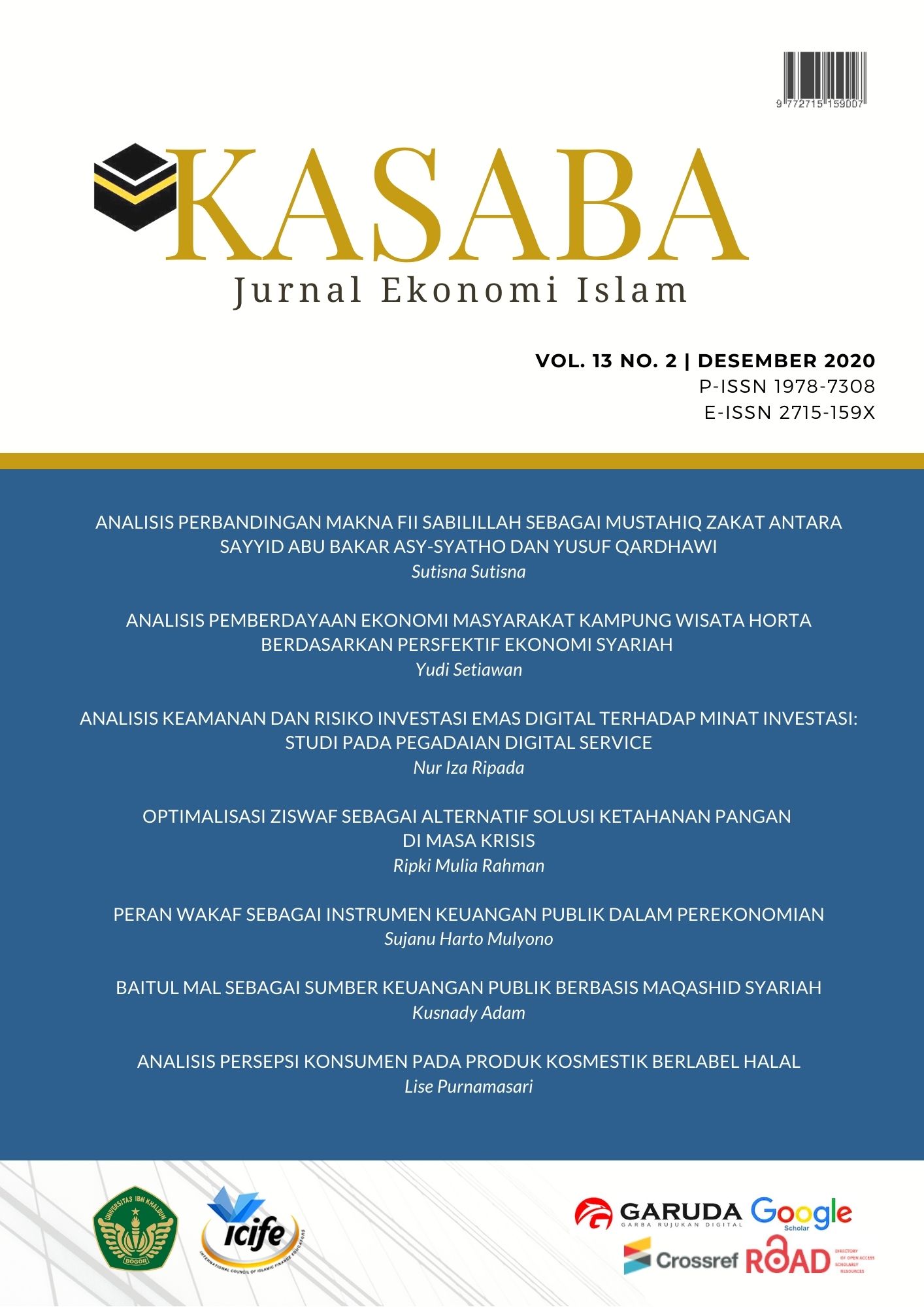PERAN WAKAF SEBAGAI INSTRUMEN KEUANGAN PUBLIK DALAM PEREKONOMIAN
DOI:
https://doi.org/10.32832/kasaba.v13i2.3665Keywords:
waqf, public financeAbstract
This paper attempts to analyze the role of waqf as a voluntary public financial instrument that contributes to the economy. In contrast to mandatory public financial instruments such as tax under positive law and zakat under Islamic law, waqf is a potential Islamic financial instrument to be applied to the welfare of society at large because waqf is an instrument to protect people's assets from the existing capitalist system due to property Waqf has fixed and unchanging characteristics which make it different from other public financial instruments. This writing is a literature writing. The approach taken is a philosophical approach by examining several sources in obtaining waqf models in several countries and their success, including the application of the use of the waqf instrument in Indonesia. From the results of the literature study, it was found that waqf was a public financial instrument that could benefit the people of a country. In Indonesia, waqf developed quite well with the issuance of the first waqf sukuk by the Indonesian finance ministry. It is hoped that the increasing awareness of the potential of waqf and the higher the level of faith of the Muslim community in Indonesia can also increase the potential of waqf even more for the benefit of the Islamic ummah.Downloads
Published
2020-12-31
How to Cite
Mulyono, S. H. (2020). PERAN WAKAF SEBAGAI INSTRUMEN KEUANGAN PUBLIK DALAM PEREKONOMIAN. Kasaba: Jurnal Ekonomi Islam, 13(2), 122–137. https://doi.org/10.32832/kasaba.v13i2.3665
Issue
Section
Reviewing
License
Penulis memberikan hak cipta karyanya kepada jurnal yang dilisensikan di bawah Lisensi Atribusi Creative Commons yang memungkinkan orang lain untuk menggunakan karya dengan pengakuan kepengarangan karya dan publikasi awal dalam jurnal ini.





